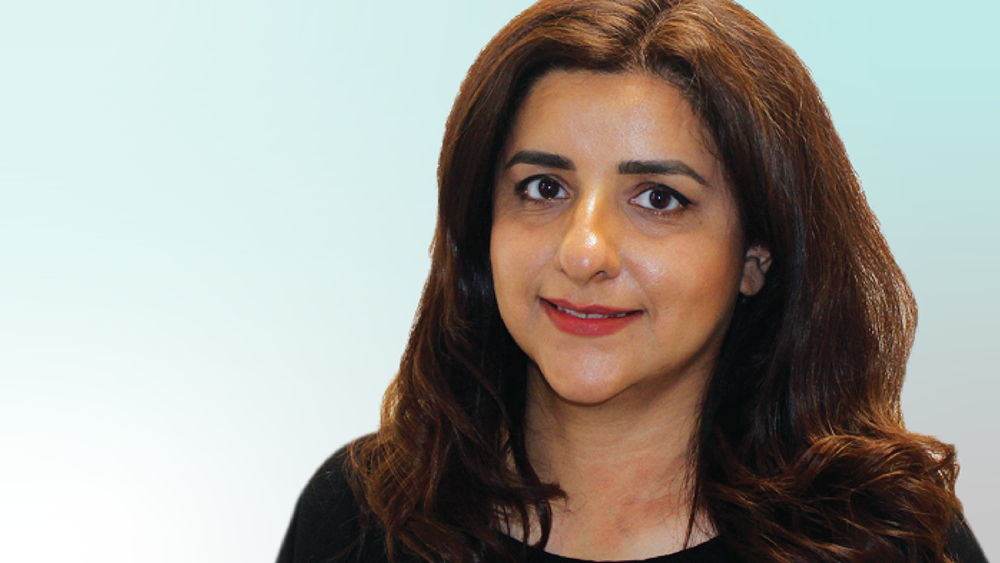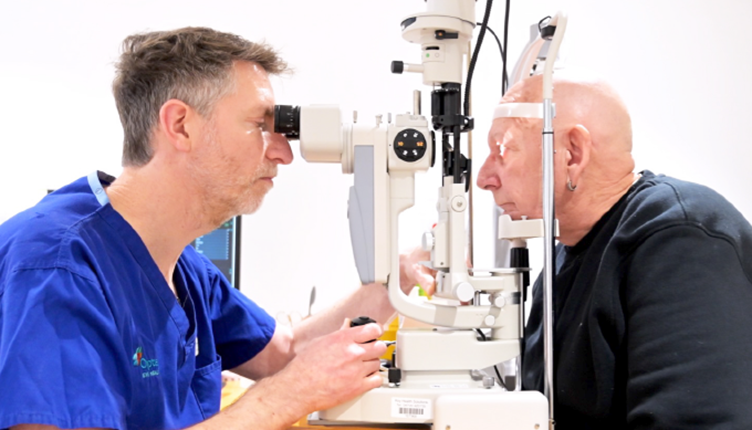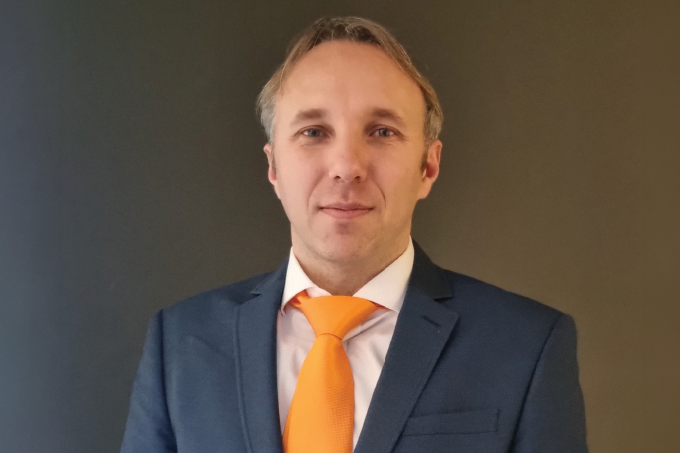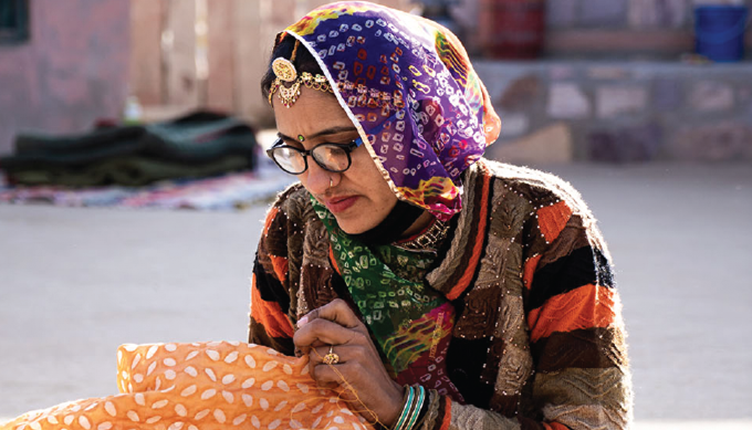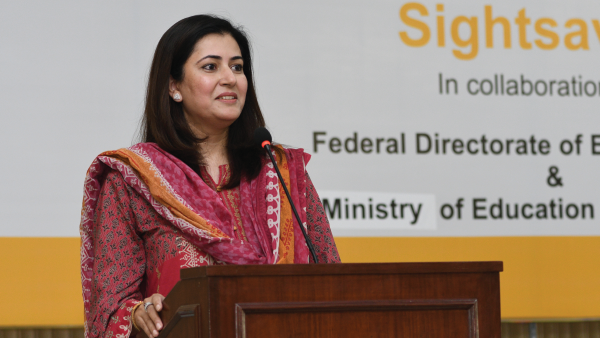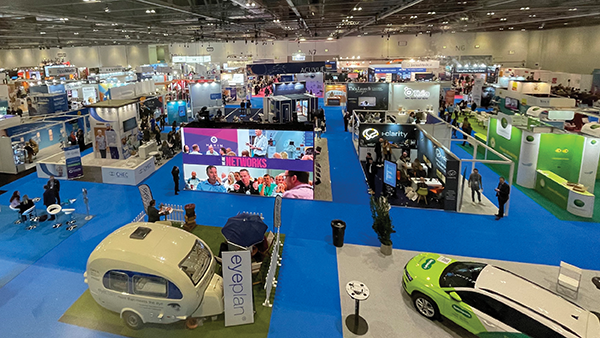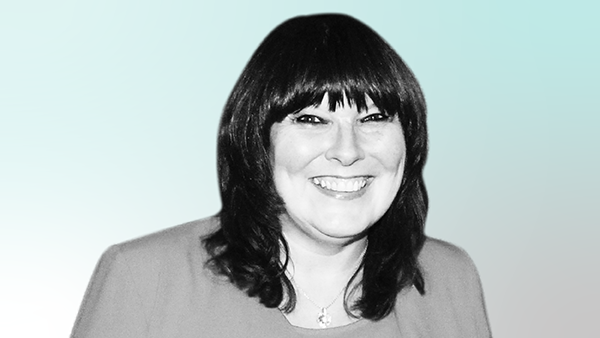You are viewing 1 of your 3 articles before login/registration is required
Bursting the Bubble of Complacency
Acknowledging there’s an equity, diversity, and inclusion problem in the optical workforce is the first step to tackling it.
Bobby Sarvat Fida joined the newly opened Asda Opticians in 2002 and now works for the company part-time as an Optical Compliance Manager. She also works as Optical Lead for the Local Optical Committee Support Unit (LOCSU) and serves as a panel member on the General Optical Council’s Fitness to Practice hearings.
In October, Bobby and fellow LOC member Farah Awan spoke at the National Optical Conference on the importance of equity, diversity, and inclusion (EDI) within the optical workforce. The results of a survey of LOC members on EDI issues are set to be published soon, and will be processed and analyzed “to create an initial framework for LOCs to utilize.”
The New Optometrist sat down with Bobby to talk about EDI advocacy – and her own experiences of discrimination in the workplace.
When it comes to EDI, what are the main challenges in the UK’s optical workforce?
There are two overarching challenges.
The first is the impact on patient care. Being involved in delivering eye care to the public, day in and day out, must surely mean equity, diversity and inclusion is exercised – right? I have naively held onto the belief that there isn’t a big issue and that, as we all become more aware, things must be improving.
But we have huge problems. People are losing their sight and the NHS can’t cope. Why are certain groups of patients not accessing eye and health care? What are the barriers and what can we do to negate these? These are all questions we must answer with resolutions, if we are truly committed to EDI.
The second is the impact within our own workforce. As my career has developed and as I’ve engaged with multiple stakeholders and organizations, I’ve become increasingly aware that we have not given enough time or thought to EDI.
In our everyday clinical roles, we have rigid protocols and processes to follow, we have learning to do, we have demands on our time. Dipping into learning that is not clinical in nature is something optical professionals have not always explored or had direct access to.
When I look at leadership roles and statistics around how minority groups are underrepresented both in delivering and accessing eye care, I think it’s high time we did more. We cannot carry on trapped in this bubble of complacency.
Have your own career experiences been shaped by EDI issues?
Having a vocational degree and entering a profession where you’re in demand has meant that, on the face of it, I haven’t felt as though my career has been impacted in a negative sense.
However, when I think back to interviews at university and the comments and assumptions made early on in my career, I am sometimes horrified at what I chose to ignore. For instance, being asked if I had a medical professional in my own family. What did my mum and dad do for a living? How old were my parents when they came to this country? How would I cope at university, with no other family members having experienced university? Would my husband force me to wear a hijab after marriage? Being asked during a meal out with colleagues if my daughter would grow up to have an arranged marriage…
I’ve also witnessed “nice” comments. “You’re not like others, you’re one of us!” (because I don’t cover my hair) – or “We like you because you speak normal English, like us.”
These comments are still made by people who are employers, employees, and healthcare providers. And that means we still have a big problem.
How can organizations and individuals tackle the EDI problem?
I think the first step is to accept that we have not done enough and that we still have a problem. Just because we don’t see the problem or the problem does not appear to directly affect our own work does not mean that the lack of EDI is not our collective issue to solve.
One of the counter-effects of raising awareness on EDI is that things go undercover – they are masked or hidden. And that’s why we need to be proactive and tackle it head on. There has to be an active commitment to include because, if you are passive, you will exclude. I have heard comments such as, “The reason Black, Asian or minority groups are not represented in leadership roles is because they haven’t applied or tried.” If in 2022 we don’t have diverse or representative organizations and groups, it’s because the majority have not tried. People have to be empowered and feel included – and, if your organization does not attract a diverse workforce, it’s your problem and you need to fix it.
Optometrists can experience discrimination from patients. How can this issue be sensitively tackled?
This kind of discrimination can be really difficult to deal with – and I really feel for those who suffer it. There is a saying in the Quran – “Good deeds erase bad deeds,” which springs to mind. And perhaps my mantra of “Kill them with kindness” also helps. (Though in a healthcare setting, perhaps “kill” should be avoided!) Personally, I take discriminatory comments as a challenge and as an opportunity. Predominantly, discrimination and prejudice come from a lack of knowledge and education. They can be fuelled by environments and media that people do not have control of. As a healthcare professional, I’m in a privileged position to i) look after people’s eye health and well-being, and ii) do it so well that they will be forced to change their opinion.
I hope that having a loyal patient base and long-standing and returning patients means that my mantra and beliefs have worked in this regard.
The New Optometrist Newsletter
Permission Statement
By opting-in, you agree to receive email communications from The New Optometrist. You will stay up-to-date with optometry content, news, events and sponsors information.
You can view our privacy policy here
Most Popular
Sign up to The New Optometrist Updates
Permission Statement
By opting-in, you agree to receive email communications from The New Optometrist. You will stay up-to-date with optometry content, news, events and sponsors information.
You can view our privacy policy here
Sign up to The New Optometrist Updates
Permission Statement
By opting-in, you agree to receive email communications from The New Optometrist. You will stay up-to-date with optometry content, news, events and sponsors information.
You can view our privacy policy here
